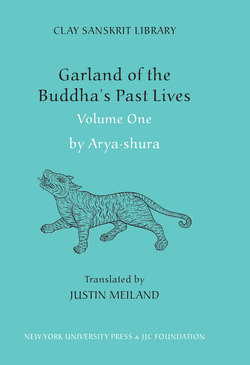Читать книгу Garland of the Buddha’s Past Lives (Volume 1) - Aryashura - Страница 32
На сайте Литреса книга снята с продажи.
Оглавление18In “The Birth-Story on the Tigress” (1.26–28), the Bodhi·sattva predicts the emotional reactions that his feat will produce in others, including faith, astonishment, incitement, and joy.
19For example, 34.2+: “Protected this way by the Great Being, the creatures in that forest area prospered happily, just as if they had a teacher, kinsman, a doctor, or a king.”
20See Ohnuma (2007), especially 140ff. for an analysis of giving in Buddhism. See Meadows (1986: 15) for an analysis of story 10, which appears to straddle both giving and virtue.
21“Giving, they say, extracts the essence out of wealth” (3.35 [23]).
22The mental attitude of joy is, however, central to all forms of giving. See 8.44–8.46 for a group of verses in which joy is emphasized.
23A common motif is that Shakra, the king of the gods, tests the Bodhi·sattva’s resolve, thereby revealing the extent of his virtue. See Ohnuma (2007: 67ff.) for an interesting analysis of Shakra’s role.
24See especially stories 2, 8, and 9. A similar conflict is expressed in stories 18 and 20, in which the Bodhi·sattva’s renunciation of society as an ascetic meets strong opposition.
25For this more fallible and “human” side to the Bodhi·sattva, see also “The Birth-Story of Unmadayanti” (13), in which the Bodhi·sattva is a king who struggles with his lust for a minister’s wife.
Select Bibliography
Basu, R. 1989. Eine literatur-kritische Studie zu Aryasuras Jatakamala zusammen mit einer kritischen Edition der anonymen Jatakamalatika und einer kritischen Edition der Jatakamalapanjika des Viryasimha. PhD dissertation, Bonn.
Collins, S. 1998. Nirvana and other Buddhist felicities: Utopias of the Pali Imaginaire. Cambridge: Cambridge University Press.
